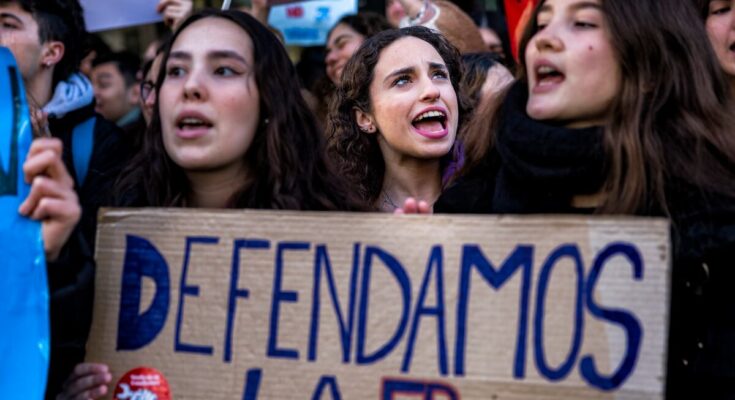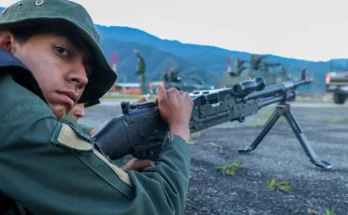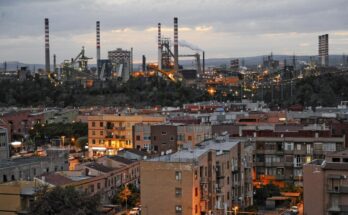For another year, the number of students left without a public place to obtain a Vocational Training diploma in the Community of Madrid was compared by the Comisiones Obreras union, which five years ago had drawn up a report with these data, and by the regional government. The union’s latest research shows that 62,191 young people were unable to find a place, a figure that marks a new record: from 2023 to 2024, 20% more students were left out, and from 2024 to 2025 the figure rose to around 29%. The Madrid Executive once again denies the information provided by the union because “it does not come from any official source” and assures that in this course, in reality, there were more than 5,000 vacancies across all grades, even after the extraordinary enrollment period that opened in October.
However, experiences like that of Lucas Buga, a twenty-year-old from Madrid, demonstrate that exclusion is a very real problem for young people. “I’ve been trying to get a place in vocational training for three years. I’ve signed up for all kinds of specialties, from elderly care to video,” he says. He had no luck, so he went the route that many in his situation follow: get to work on whatever came his way, which in his case was cleaning. “It is very clear that this situation is getting worse year after year,” clarifies Buga, who is also a member of the Madrid Student Union.
According to official data from the Community of Madrid, this year the FP has more than 188,500 students, 10,000 more than last year, a figure that includes both those enrolled in public and private education. The demand grows year after year due to the employability of students who complete this type of training, but the supply continues to be much lower, according to the assessment carried out by CC OO after analyzing data from Basic Vocational Training, Intermediate Vocational Training and Higher Vocational Training. Furthermore, the difference continues to grow over the years.
“The public offer of vocational training in Madrid does not respond to the real demand of students or the needs of the labor market,” criticizes Aida San Millán, secretary of Education of CC OO Madrid. What he agrees with the regional administration is that there are still vacancies, but this happens because “the Department does not plan or adapt the offer, wasting resources and perpetuating a model that does not orient training towards the real needs of the Madrid economy”.
According to the government spokesperson, the 5,000 vacancies that have been released include “cycles with high demand and high employability” such as vehicle maintenance or building renovation and maintenance (basic grade), telecommunications installations or food marketing (middle grade) and web application development or industrial automation and robotics (higher grade). And he adds that the department “continues to work to adapt the training offer of these studies, both to the most requested profiles in the job market and to the different areas of the region, with the aim that students can study the cycle they want without having to make long journeys”.
On the contrary, CC OO highlights that the worst situation is recorded in the Intermediate FP, where 70% of students are rejected, approximately 26,021. The specialties with the highest number of rejected applications are Driving in the natural environment and in leisure (89%), Networks and water treatment stations (90%), Video disc jockey and audio (86%), Medical emergencies (82%) and Assembly of structures and installations of aeronautical systems (94%).
The Higher Level FP follows, with 69% of young people, 34,485, left without a place. Imaging for Diagnostics and Nuclear Medicine is the specialty with the worst data, with 94% of those not admitted, 15% more than the previous year. This is followed by Early Childhood Education with 78% excluded (6% more than in 2024) and 3D Animations, Games and Interactive Environments, which excludes 77%, demonstrating “a clearly insufficient offer”.
Even 36% of those who aspired to the Basic FP qualification did not achieve it. There are 1,685 young people who cannot access a public place to continue their studies. In this case, accidents occur mainly in specialties such as Access and conservation in sports facilities (38%), Commercial services (34%) or Electricity and electronics (35%).
No place, no job
For the union, not only is demand far below, but also groups of different specialties are closed, i.e. there are fewer places. “The public network has gone from 1,791 groups to 1,733, a reduction close to 3.5%, which contrasts with the sustained growth in the number of students applying,” they complain. “This decline, far from being punctual, is repeated year after year, while the regional government announces the creation of positions that are in fact concentrated in private centers, leaving thousands of young people who aspire to train in the profession of their future without opportunities.”
And this is one of the great dilemmas. Another CC OO report from last summer indicated that almost 50% of students enrolled in FP attended private education, which, it was noted, had to do with the fact that in some professional sectors, such as healthcare, IT, communications and all training related to physical and sporting activities, the largest provision is in private education. The offer in these centers grows with the level of education. In the higher grades, where there is greater employability and access to better working conditions, the presence of the private sector is very strong, which means that families with lower incomes do not have the possibility of obtaining this type of job.
“Those with greater economic possibilities enroll in private education, but those who cannot afford it are forced to abandon their studies, a failure of the system that deepens inequalities and reduces training and work opportunities,” conclude CC OO. Buga underlines that the private one “is never the first option” for the majority of students because its prices are too high, even if he recognizes that the material and study conditions in this type of centers are much superior to the public ones, where there are often students “sharing the same computer” or without the possibility of completing their education because they have no place to carry out the professional internship.
“All this depends on the very conscious policy of cuts that Ayuso is carrying out,” says Buga, who highlights the Ministry of Education for not having taken action on an issue that affects so much the future of young people. “In Madrid what they want to do is delete the word ‘public’ from the FP as is being done with the university.”



